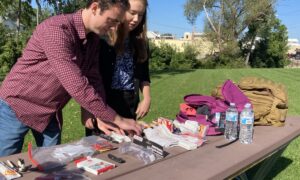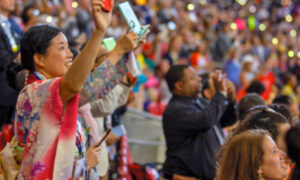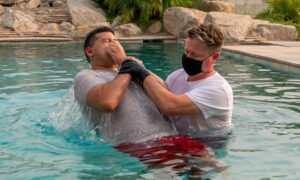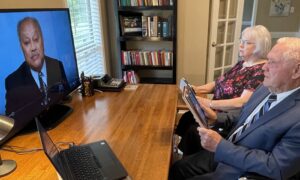JUBA (Reuters) – Jehovah’s Witnesses in a south Sudan town have been harassed and expelled and a place of worship was burned down after it was alleged they had told voters not to take part in a secession referendum, members of the sect said.
Members of the small minority Christian group in Sudan said the sect was wrongly accused of preventing its followers from taking part for religious reasons in the vote on Sunday that will likely see the south secede.
The semi-autonomous southern government, formed after a 2005 peace deal, has faced criticism for rights abuses including harassing the press and opposition party members and widespread intimidation and fraud during April elections.
“They (the government) accused our brothers there that they were going from house to house telling people not to register and not to vote,” Taban Jamba Lemi, a Jehovah’s Witness based in Juba, told Reuters late on Friday.
“They are just allegations and the government took them seriously,” Lemi added.
“For Jehovah’s Witnesses, each one has his own responsibility whether he votes or not. We are not dictating that all Jehovah’s Witnesses cannot vote.”
Police in Yambio, Western Equatoria State, arrested and later released two Jehovah’s Witnesses in December while a Kingdom Hall there was burned down on January 1 by “local people … instigated by the government,” Lemi said.
Two Kenyan members were expelled from the semi-autonomous region and the local government on radio announced a ban on all activities by the sect in the south Sudanese state, Lemi added.
A spokesman for Western Equatoria denied the allegations.
“The government has not banned their activities in Yambio. The radio announcement asked them to stop their campaigning against registration,” Gibson Wande, minister of information and communication for the state, told Reuters.
“They burned their own church and are accusing the government.”
Lemi said Jehovah’s Witnesses had not faced similar problems in Juba as representatives had met with the governor to explain the misunderstanding. He said around 1,000 members of the sect were in Sudan, with the majority living in the south.
The Carter Center international observers said in a statement last month it was “concerned about intimidating rhetoric prevalent in Western Equatoria aimed at the Jehovah’s Witness congregation”.
“The Carter Center calls upon all stakeholders in Western Equatoria to respect the right of all individuals to participate in or refrain from the referendum process.”





